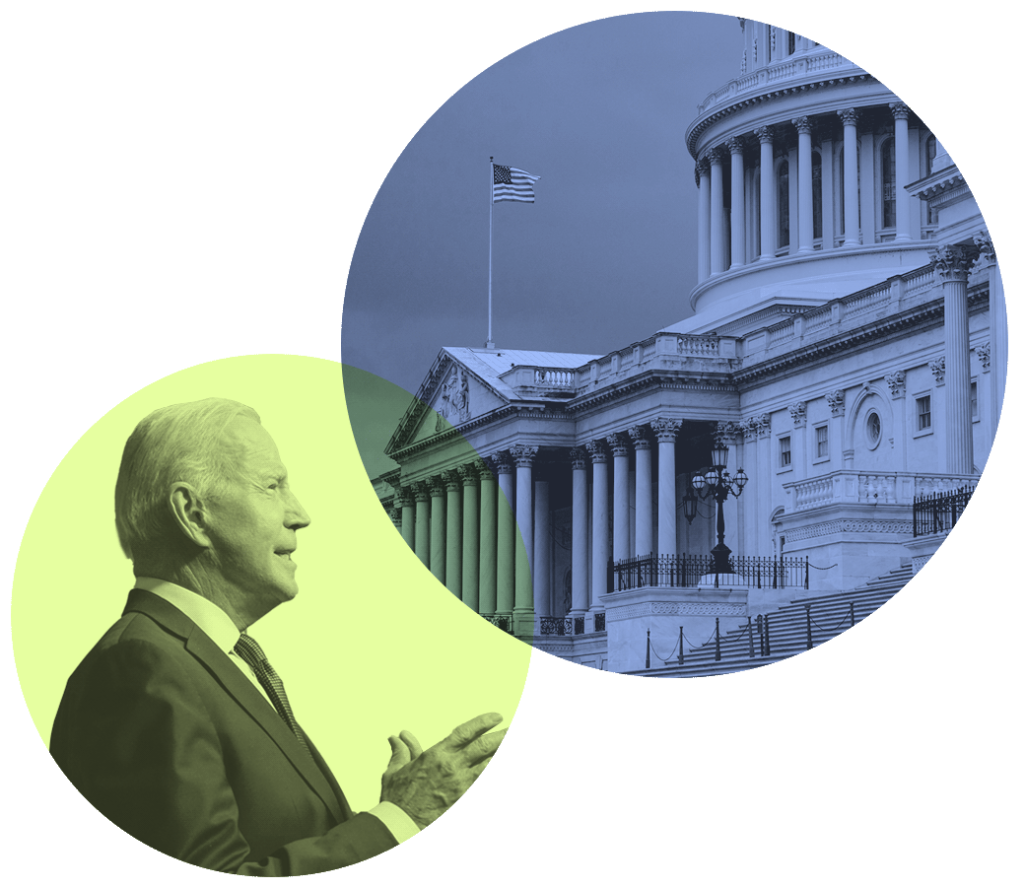A short-run weekly newsletter analyzing federal climate action during the first months of the Biden administration.
Hi there, I’m Zoya Teirstein. It’s day 94 of the Biden administration, and this week, the president brought the world to the bargaining table.
Joe Biden began his first 100 days in office with a slew of climate-related executive orders. He’s wrapping them up with a geopolitical Coachella for climate action.
On Thursday, 40 heads of the world’s most powerful economies attended Biden’s virtual Leaders Summit on Climate Change. At the event, Biden announced a pledge to cut U.S. greenhouse gas emissions by at least half of 2005 levels in less than a decade as part of an updated non-binding commitment to the Paris Agreement.
While Biden threw down the climate gauntlet before world leaders, his counterparts didn’t exactly scramble to pick it up. Most showed up to Biden’s summit without new or more ambitious commitments to slash emissions — though there were a few notable exceptions.
Japanese Prime Minister Yoshihide Suga announced a new emissions reduction target of 46 percent compared to 2013 levels by 2030, up from 26 percent. Canadian Prime Minister Justin Trudeau said his country will reduce its 2005 emission levels by 40 to 45 percent by 2030, up from 30 percent. India’s prime minister, Narendra Modi, announced a new partnership with the U.S. that will help mobilize investment in green technology. Brazilian President Jair Bolsonaro promised his country would go carbon neutral by 2050, 10 years sooner than its previous target. And Vladimir Putin said he would keep Russia’s emissions below the E.U.’s over the next 30 years, a pledge he made in a speech a day before the summit.
Ultimately, Biden’s gathering was more of a comeback celebration than an international call to action. The president’s new climate target is ambitious by virtually any standard, and it’s one the White House hopes will restore the nation’s climate cred.
America spent the past four years unraveling years of domestic and international climate progress, starting with former President Donald Trump’s announcement of his intention to withdraw the U.S. from the Paris Agreement in early 2017. The U.S. isn’t new to the climate hokey pokey, especially as it has ping-ponged from Democratic to Republican administrations. Republican George H.W. Bush blew up the Rio Earth Summit in 1992 when he refused to commit to specific emissions reductions. His son, George W. Bush, then withdrew from the Kyoto Protocol in 2001.
Biden is trying to signal that the U.S. has turned the page on climate inaction, but it’s unclear how he aims to actually accomplish his 2030 pledge. The only plan on the table that could even start the process of slashing emissions at the scale he’s promising is his recent $2 trillion infrastructure proposal, which has drawn staunch opposition from Republicans.
In fact, despite countries’ myriad climate “commitments,” few nations have legally binding emissions reductions programs in place — and even fewer are on track to slash emissions at the rate necessary to avert climate catastrophe. “The huge gap between what we are doing and what actually needs to be done to stay below the 1.5 degrees Celsius (2.7 degrees Fahrenheit) target is widening by the second,” Greta Thunberg, the Swedish climate activist, testified before the House Oversight Environment Subcommittee on Thursday.
In the coming months, there’s no shortage of opportunities for the international community to firm up its commitments to addressing climate change. The G7 and G20 meetings will take place in June and October, respectively. Then there’s the United Nations General Assembly meeting this fall. And finally, after skipping a year due to COVID-19, the U.N. will hold its next climate conference this November in Glasgow, Scotland.
But Wait … There’s More.
- Does the U.S.’s new climate goal pass muster? Biden’s pledge isn’t quite as large as the emissions cuts promised by the E.U. and Britain, which were announced in the days leading up to the president’s climate summit. British Prime Minister Boris Johnson announced on Tuesday that the United Kingdom would cut emissions 78 percent by 2035, and the E.U. finalized a deal on Wednesday that sets a target of reducing emissions 55 percent from 1990 levels by the end of the decade. Still, Biden’s pledge is one of the boldest goals announced by a wealthy industrialized nation … for now.
- The Green New Deal gets a second wind. Progressives reintroduced the Green New Deal — the ambitious call to eliminate emissions, pursue environmental justice, and jumpstart a green economy — on Tuesday, two years after Representative Alexandria Ocasio-Cortez and Senator Ed Markey initially introduced it. The resolution doesn’t spell out how to achieve any of the above — and it doesn’t stand much of a chance of passing the upper legislative chamber. But that’s not really the point, is it?
- The long battle over California’s vehicle emissions standards will come to a close soon. The Biden administration is moving to undo Trump-era policies that sought to prevent the state from setting its own standards. In fact, Biden is considering making some of California’s vehicle efficiency requirements the nationwide benchmark.



